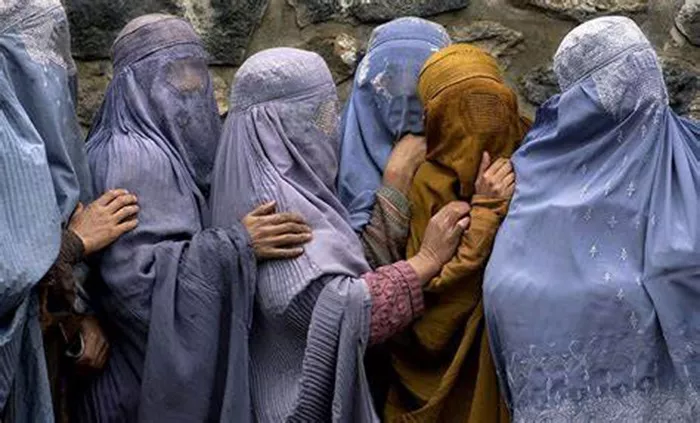In the heart of Afghanistan, a dedicated maternal health professional named Fariba is a beacon of hope for countless women and children. Her journey, marked by perseverance and compassion, is a testament to the vital role women play in the well-being of communities and nations.
Fariba’s career in healthcare began in 1996 after she graduated from Kabul Medical University. She quickly became a respected gynecologist at a government hospital’s maternity ward, where her expertise and dedication made her a role model for many women in her field.
“Few women spoke English at the time, and many sought my help with their theses,” Fariba recalls, highlighting her early influence.
Beyond her hospital duties, Fariba contributed to an international non-governmental organization focused on child malnutrition. It was there that she confronted a harsh reality: “Most malnourished children were girls because families prioritized boys. Even mothers with twins would often breastfeed their sons first, leaving their daughters if there was any milk left,” she explained.
Determined to make a difference, Fariba joined another organization that focused on community midwifery education. She played a key role in implementing an 18-month program in an Afghan province, a project fraught with challenges. “We struggled to find women who had completed sixth grade, a requirement for certification. This was shortly after the first de facto regime, when women’s access to education was severely restricted,” Fariba shared.
Despite these obstacles, Fariba and her team tirelessly traveled from village to village, raising awareness and garnering family support for women to enroll in the program. “At first, we found only 25 women who had studied up to third, fourth, or fifth grade, with just a few completing sixth grade. We provided writing and reading courses alongside the program so that by the time the women graduated, they had also completed sixth grade.”
The program ran successfully for eight years in four cycles and gained regional recognition. “We no longer needed awareness campaigns; families themselves were eager to register their women relatives,” Fariba noted.
One particular job vacancy received 1,000 applications, a clear sign of the growing importance of education for women and the recognition of midwives’ vital role in society. “Those midwifery schools have now evolved into institutions educating thousands of women,” Fariba proudly stated.
Before joining the United Nations in 2022, Fariba promoted and expanded these schools and nursing programs to 11 provinces. At the UN, she has continued her work, strengthening midwifery programs across Afghanistan. In remote and marginalized communities, she monitors and ensures the quality of reproductive, maternal, newborn, child, and adolescent health services. Fariba also empowers communities through mobilization, capacity-building, and the establishment of round-the-clock services.
Her message to women is clear: “I encourage women to study to empower themselves and serve others. Work not just for financial reasons, but to make a difference in the lives of others.”
Fariba’s journey is not just a story of one woman’s dedication; it’s a powerful reminder of the strength and resilience of Afghan women, who, despite countless challenges, continue to fight for a better future for themselves and their communities.
[inline_related_posts title=”You Might Be Interested In” title_align=”left” style=”list” number=”6″ align=”none” ids=”11202,11194,11245″ by=”categories” orderby=”rand” order=”DESC” hide_thumb=”no” thumb_right=”no” views=”no” date=”yes” grid_columns=”2″ post_type=”” tax=””]

































